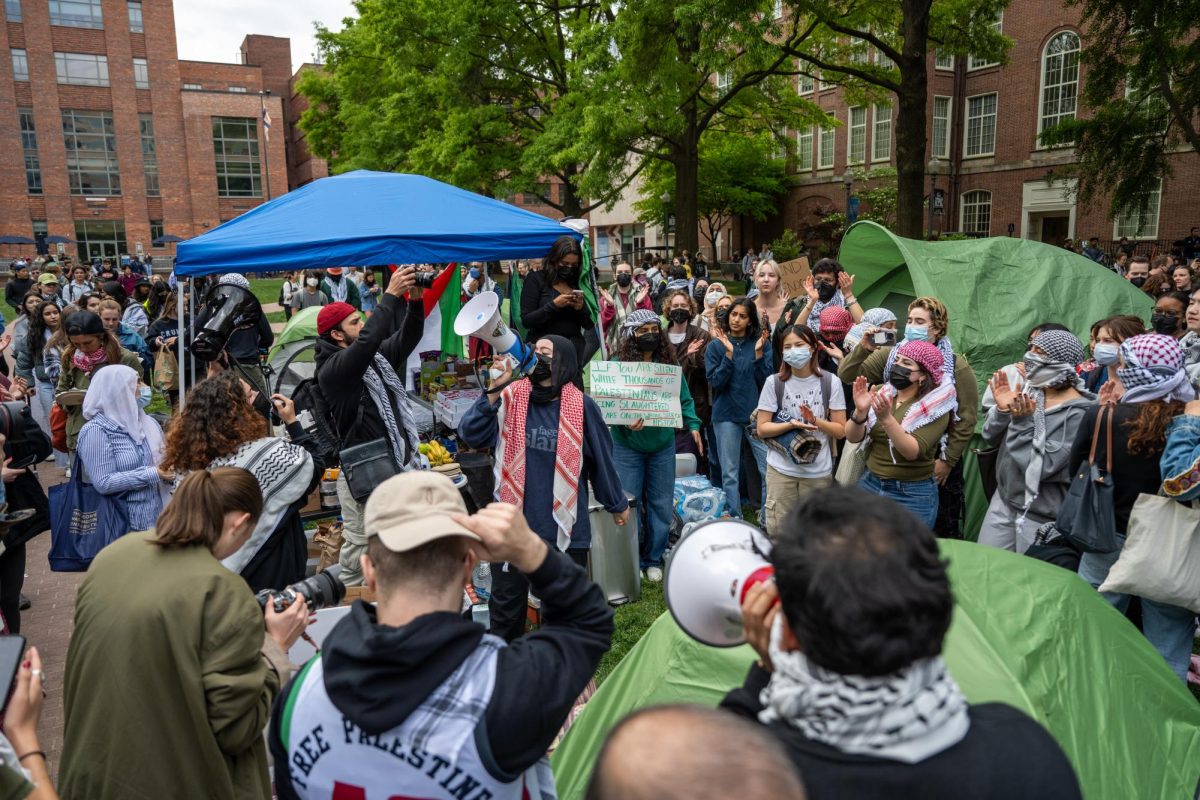The future of democratic rule in Egypt is unsure, three leading experts in Middle Eastern studies said at the first event for the Project on Middle East Political Science in the Elliott School of International Affairs Tuesday night.
In Egypt, this year’s parliamentary election and the planned presidential election in 2011 will likely end the 29-year rule of President Hosni Mubarak. His declining health has caused rumors to circulate that his party will appoint his son to the ticket in his place, worried that Mubarak won’t survive through the five-year term.
Tuesday’s speakers disagreed about whether the transition to power for Mubarak’s son, Gamal Mubarak, would result in a positive outcome for an Egyptian democracy.
Tarek Masoud, an assistant professor of public policy at Harvard University, said he was open to the possibility of an Egyptian president without a military background.
“I think that we should welcome Gamal’s ascension to power not because we think he would be a great president, but because his presidency would move us a little further down the road toward democracy,” said Masoud, who resisted the notion that Egypt would become more authoritarian with the rise of Gamal.
Although rigged elections and virtual one-party rule by Egypt’s National Democratic Party may shake American observers, Masoud said Egypt’s democracy may improve in the long-term.
“We may have to endure some rough, ugly authoritarianism to get to the ultimate goal of civilian democracy,” Masoud said.
Nathan Brown, a professor of political science and international affairs at GW, and Samer Shehata, an assistant professor of Arab politics at Georgetown, disagreed.
Brown said that a brief liberalization period after an exchange of power would likely later turn sour under the younger leader.
Shehata accused Masoud of constructing an unethical outlook about the election, claiming that a significant portion of the Egyptian population will not support Gamal as president and that his election would not lead to further democratization.
Masoud countered that his assessment of the 2011 election would prove more pragmatic.
“We both recognize that what is right is democracy. We’re trying to discern the most likely paths toward that,” said Masoud, directing his argument at Shehata. “You’re holding back for the perfect; I’m saying there’s something that’s good enough.”
For the at-capacity crowd of students and Middle East observers, the varying opinions added to the discussion.
“I think the liveliness made it a little more enjoyable, and less dry and academic,” said Madelyn Yribarren, a second-year graduate student in the Elliott School.
Marc Lynch, a professor at GW and the moderator for Tuesday’s panel, said that this year’s inaugural event for the Middle East project was a success.
“Egypt is a country in the region which attracts a lot of interest and which is going through a number of important transitions,” Lynch said. “[Events like these] are helping to make GW a central point for the academic study of the Middle East.”






